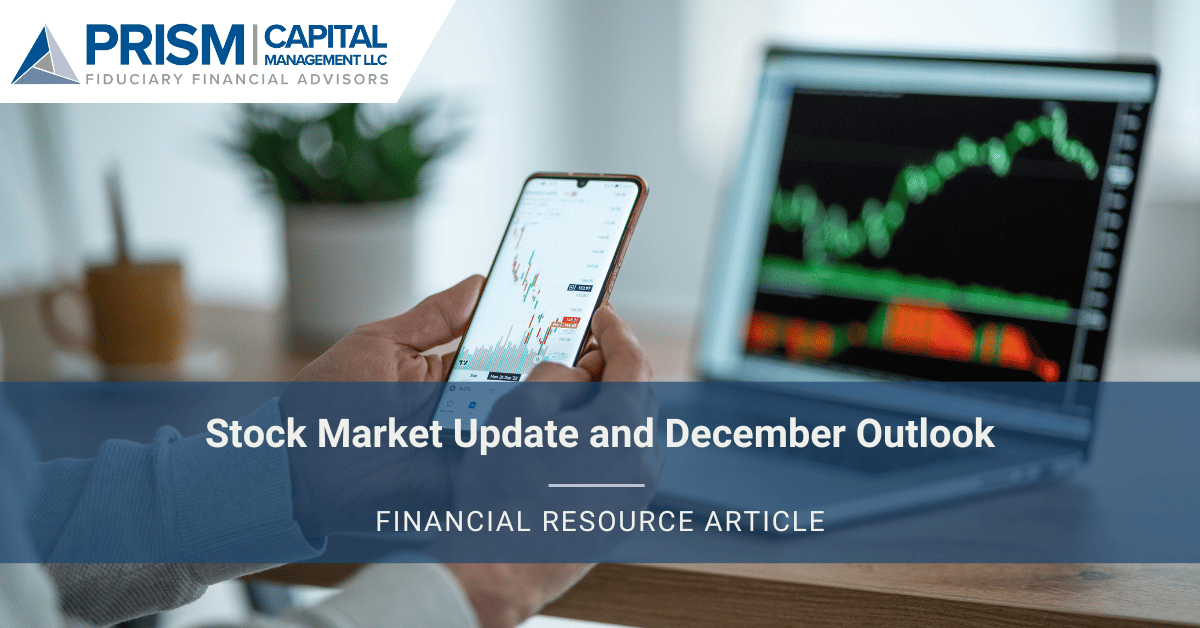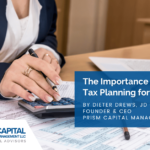Stock Market Update and December Outlook
As we move through the final quarter of 2024, November has provided a mix of challenges and opportunities in the stock market. This month marked a period of reflection on monetary policies, corporate earnings, and global economic dynamics, all of which set the tone for the critical year-end period in December. Here’s a look back at November and a forward glance at what December may bring for investors.
Earnings Season Wrap-Up
November saw the conclusion of Q3 earnings reports, with mixed results across sectors. Tech giants outperformed expectations, thanks to strong demand for artificial intelligence (AI) and cloud computing services. Meanwhile, consumer discretionary stocks faced headwinds, as inflationary pressures and high interest rates weighed on consumer spending.
– Federal Reserve Signals: The Federal Reserve cut its key interest rate by a quarter-point in response to the steady decline in the once-high inflation. The rate cut follows a larger half-point reduction in September, and it reflects the Fed’s renewed focus on supporting the job market, as well as fighting inflation, which now barely exceeds the central bank’s 2% target.
– Geopolitical Influences: Ongoing geopolitical tensions, particularly in the Middle East and Ukraine, are impacting energy markets, leading to volatility in oil prices. This, combined with the strengthening U.S. dollar, posed challenges for multinational companies reliant on exports.
– Sector Movements:
- Technology: Continued to drive market growth, fueled by AI advancements.
- Energy: Fluctuated with oil price volatility.
- Healthcare: Experienced modest gains as investors sought defensive positions amidst uncertainty.
December Market Outlook
As the year draws to a close, December is expected to be shaped by key economic indicators, seasonal trends, and investor sentiment.
– Holiday Retail Performance: Retail sales during the holiday season will be a critical indicator of consumer confidence. A strong performance could lift consumer discretionary stocks, while a weaker-than-expected outcome may reflect broader economic caution.
– End-of-Year Tax Strategies: Many investors engage in tax-loss harvesting during December, which may create additional volatility in underperforming sectors. On the flip side, portfolio rebalancing could bolster high-performing sectors like technology and utilities.
– Potential Santa Claus Rally: Historically, markets have tended to rally during the final week of December, known as the “Santa Claus Rally.” Whether this phenomenon materializes will depend on prevailing economic data and broader investor sentiment.
Key Risks to Watch
– Economic Data: Any deviation in job market reports, inflation updates, or GDP growth projections could influence the Fed’s 2024 rate policy, impacting markets.
– Global Market Conditions: Continued geopolitical uncertainties and slowing growth in major economies like China and the Eurozone may create ripple effects in the U.S. markets.
Investment Strategies for December
As we approach the year-end, here are a few strategies for investors to consider:
– Diversify Your Portfolio: Maintain a balance between growth and defensive stocks to navigate any unexpected volatility.
– Monitor Economic Indicators: Stay informed about key data releases to adjust your strategy as needed.
– Think Long-Term: Focus on your broader financial goals rather than reacting to short-term market movements.
Conclusion
November showcased the resilience of the U.S. stock market amidst complex economic and geopolitical dynamics. As December approaches, investors should remain proactive and informed, preparing for both opportunities and risks that could define the start of 2025.
Financial Services for Real People
Founded for the benefit of clients, Prism Capital Management is an independent Seattle and Skagit-based firm with a deep commitment to providing guidance that is free of conflicts of interest, based solely on the sum of our experience and expertise. We are committed to putting client interests first and to stewarding both wealth and well-being for those we serve. We have a singular measure of success: the results we get for our clients.
As an Investment Advisor, we have a fiduciary duty to act in YOUR best interest. From planning to investment management to advice on buying a car, we are your financial life partners.




